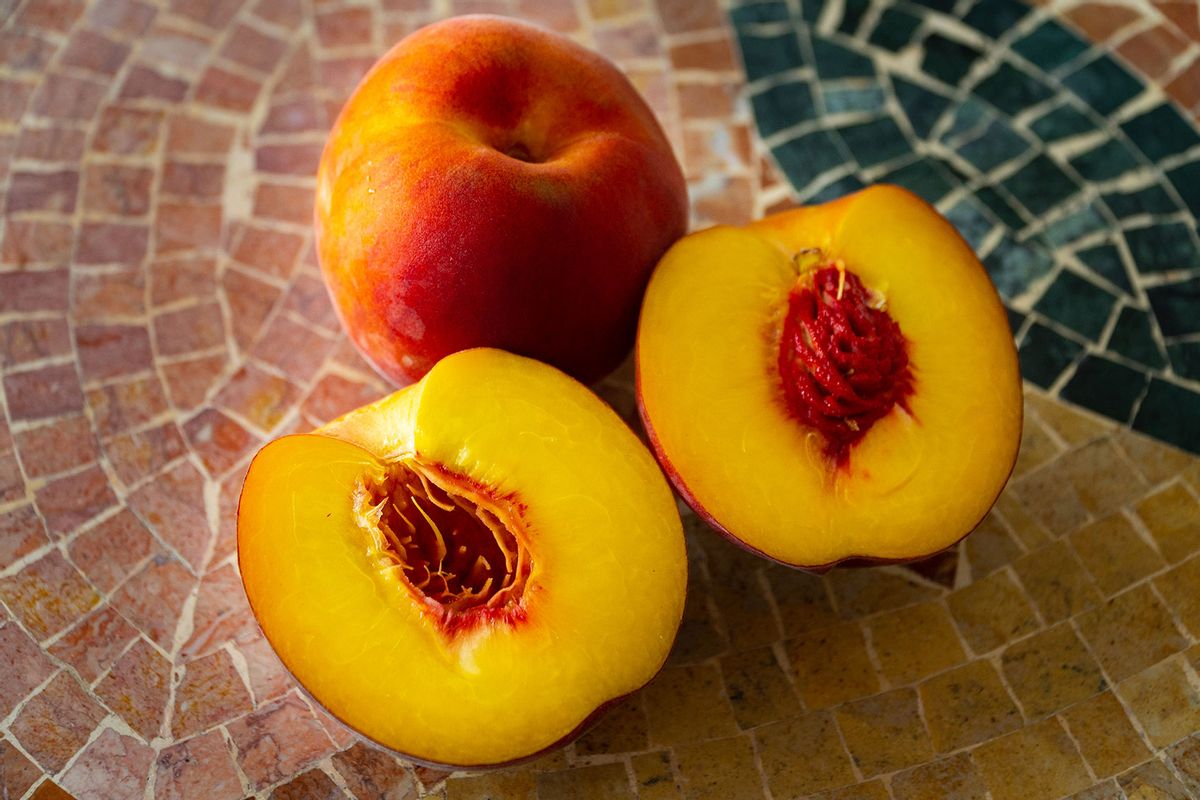Some foods really ought to have a safe word. They should let you know when things are going too far, when you ought to stop. Get out of hand with a stone fruit, for instance, and it might try to poison you.
When, earlier this month, writer Hanna Phifer posed the question on Twitter, "What's the most outlandish thing a customer has ever asked you?" content creator Henny immediately knocked it out of the park with a shocking, viral response. "A woman asked me to blend cherry pits into her son's smoothie," they wrote. "I explained that pit fruit has cyanide compounds that can literally be lethal if ground up and ingested. she yelled at me because I refused to do what she asked and demanded the regional manager's contact."
Want more health and science stories in your inbox? Subscribe to Salon's weekly newsletter The Vulgar Scientist.
It's a darkly entertaining story, perfectly told, an anecdote that feels like it would be at home in a "Knives Out" sequel or a Shirley Jackson novel. And its accuracy makes it all the more chilling. The inside of cherry pits and other drupes like peaches and plums do indeed contain a chemical called amygdalin, which when ingested, is converted to cyanide. "Not a day goes by," Henny added, "that I don't think about how this woman was trying to make me an accomplice in her son's murder." But how lethal, exactly, would that smoothie have been? How bad would it be — not just for my Vitamix — if I accidentally chucked a whole fruit into the blender this morning?
If you unwittingly swallow a whole cherry pit because your French friend insists it's not really clafoutis if you're not spitting out seeds at the dinner table, don't lose sleep over it. The worst that will likely happen is an uncomfortable eventual experience when that pit finishes its journey, intact, through your digestive system.
It's not the pit itself that's the problem. It's the components inside — that's why crushing, grinding, or chewing the pits raises the risks. The same warning holds true for other the pits of other fruits, like apples and pears as well. Children are more vulnerable to the effects. If you or your child have reason for concern, Healthline advises to seek immediate medical attention for symptoms of serious toxicity including "headache, nausea, seizures, convulsions, and difficulty breathing."
The good news for the little boy in that Twitter tale is that, even had his mother given her smoothie order to a less scrupulous person, he probably would have been okay anyway. As the National Capital Poison Center explains, "small unintentional ingestions generally do not cause harm." The key word here, however, is "small."
There are other common foods that fall into the not completely harmless category as well. Potatoes that have turned green or sprouted can contain compounds known as glycoalkaloids, which research from the National Library of Medicine warns can cause diarrhea, nausea, vomiting and other "gastro-intestinal disturbances." European research has even found that "In severe cases, paralysis, respiratory insufficiency, cardiac failure, coma and death have been reported." Just do yourself a favor and throw away any potatoes with a sketchy tinge.
Kidney beans contain a protein called lectin that can lead to nausea, vomiting and diarrhea if they're consumed raw or undercooked. Even a small amount can make you ill, so cook your beans thoroughly and at a high enough temperature. Mango skin contains a chemical called urushiol, which can cause an allergic reaction similar to that of poison ivy in some people. Peel your mango. Rhubarb leaves are high in oxalic acid, and eating them can result in shortness of breath, nausea, vomiting, and in rare cases, kidney stones and even death. Stick to the stalks.
Most people with common sense would naturally avoid things like green potatoes and raw beans. But what makes that Twitter cherry pit story different is that there really are plenty of people who intentionally consume these kinds of things. In 2017, a 67-year-old Melbourne man's doctors were baffled by the low level of oxygen in his red blood cells — until they learned he'd been consuming an apricot kernel supplement as a supposed cancer preventative. As HuffPost reported at the time, "Blood tests revealed he had cyanide in his bloodstream at 25 times acceptable levels."
Memorial Sloan Kettering advises that "Although laboratory experiments suggest anticancer properties, clinical evidence does not support this use," adding that the product "has been linked to several cases of cyanide poisoning in cancer patients." Yet the quackery around the kernels remains, evidenced by the rampant testimonials for "a highly effective treatment for cancer" on Amazon for a similar product. The issue gets even more complicated because the extract of apricot kernels, properly handled, can be a culinary delicacy. Oh, and did I mention that apricot kernels look near-identical to delicious and not-deadly almonds?
The easiest way to avoid getting sick is to just educate yourself and your kids about what fruits — especially otherwise seemingly benign ones — can pose a risk. When it comes to fruits, Poison Control advises clearly, "Pits should never be crushed or chewed. Children should be taught to spit out the seeds/pits when snacking on stone fruits." And don't be ignorant by ever feeding them to your child — or worse, trying to bully your local smoothie maker into doing it.

Shares